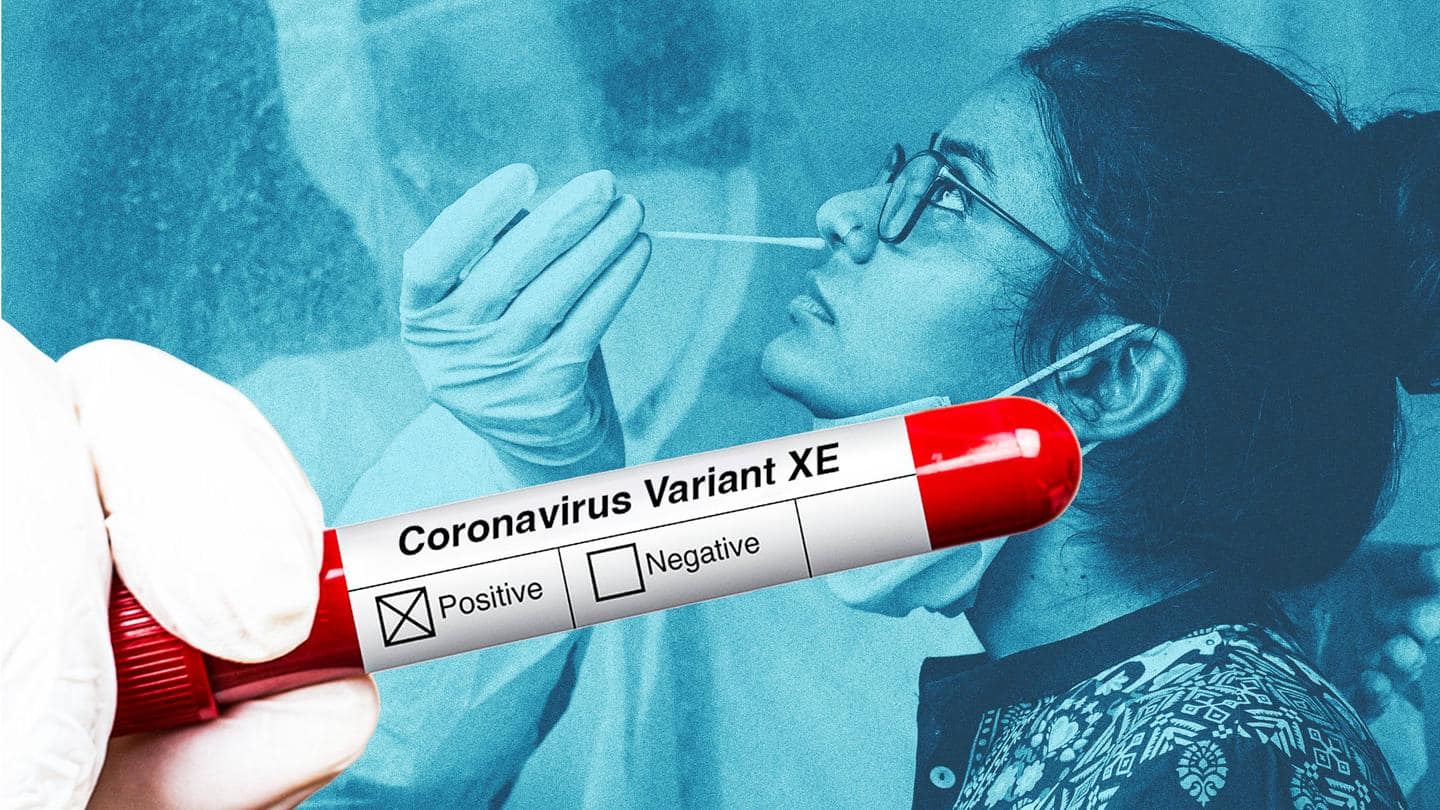
COVID-19 XE variant: India's first case detected in Mumbai
What's the story
India on Wednesday reported its first case of coronavirus variant XE in Mumbai, NDTV reported. Additionally, one case of the Kappa variation has also been identified. No severe symptoms have been observed in the affected patients. Notably, the World Health Organization (WHO) had last week said that the new strain XE may be more contagious than any other strain of COVID-19.
Context
Why does this story matter?
As the XE variant is claimed to be the most transmissible COVID-19 strain to date, it can be worrying news for India. Significantly, the XE strain accounts for a small number of cases across the globe at present. It may also be noted that India is seeing a declining trend of COVID-19, even as several countries are currently witnessing a huge spike.
Details
Details of the new case
As per a release from Mumbai's civic agency Brihanmumbai Municipal Corporation (BMC), the patient is a 50-year-old costume designer who returned from South Africa in February. She tested positive for COVID-19 on March 2, the agency said. Officials said that 228 of the 230 Mumbai patients whose samples were sent for genome sequencing are positive for Omicron, one for Kappa, and one for XE.
Information
President evidence doesn't suggest it's XE variant: Report
On the other hand, sources quoted by news agency ANI claimed that the present evidence doesn't suggest that it is XE variant. "FastQ files of the sample, being said to be 'XE' variant was analysed by INSACOG genomic experts who inferred that genomic constitution of this variant doesn't correlate with genomic picture of 'XE' variant," ANI reported.
Mutation
Origin and genetics of XE variant
The XE strain was detected in the UK at the start of the new year. It is a 'recombinant' strain, which means it is a mutation of BA.1 and BA.2 subvariants of Omicron strains. Recombinant strains emerge when a patient is infected by multiple variants of COVID-19. The variants mix up their genetic material during replication and form a new mutation.
Information
How contagious is the new XE variant?
"Early-day estimates indicate a community growth rate advantage of 10% as compared to BA.2, however, this finding requires further confirmation," WHO had claimed last week, urging people to be cautious.
XD strain
XD strain in Europe
Separately, the XD variant, a hybrid of the Delta and BA.1 lineage of Omicron, has been discovered in several European countries, including France, Denmark, and Belgium. According to Imperial College London virologist Tom Peacock, the spread of XD to multiple countries and the integration of the more serious Delta strain makes it crucial for the scientific community to keep it under constant observation.
Other strains
Other recombinant strains
According to a study conducted by the UK Health Security Agency, three new recombinant strains—XD, XE, and XF—are currently circulating. XF is another Omicron hybrid between Delta and the BA.1 lineage and was discovered in the UK but has not been detected since February 15. The XD and XF mutations are referred to as the much-talked-about "Deltacron" strains, which haven't made any impact yet.
Information
WHO is closely evaluating health risks associated with recombinant variants
The WHO had stated that it will continue to closely analyze and evaluate the public health risk associated with recombinant variants, like the XE, and provide updates as new evidence becomes available.